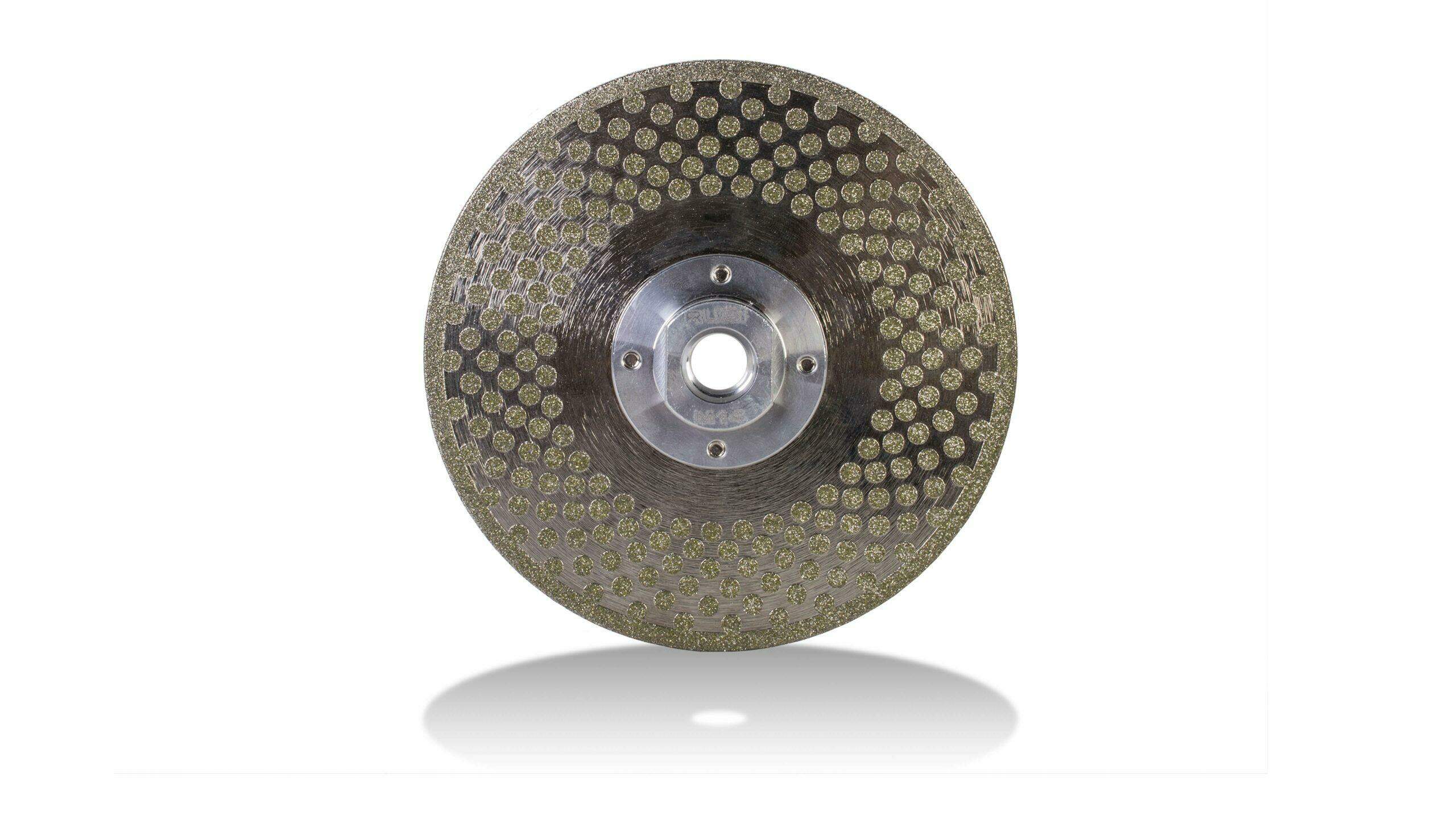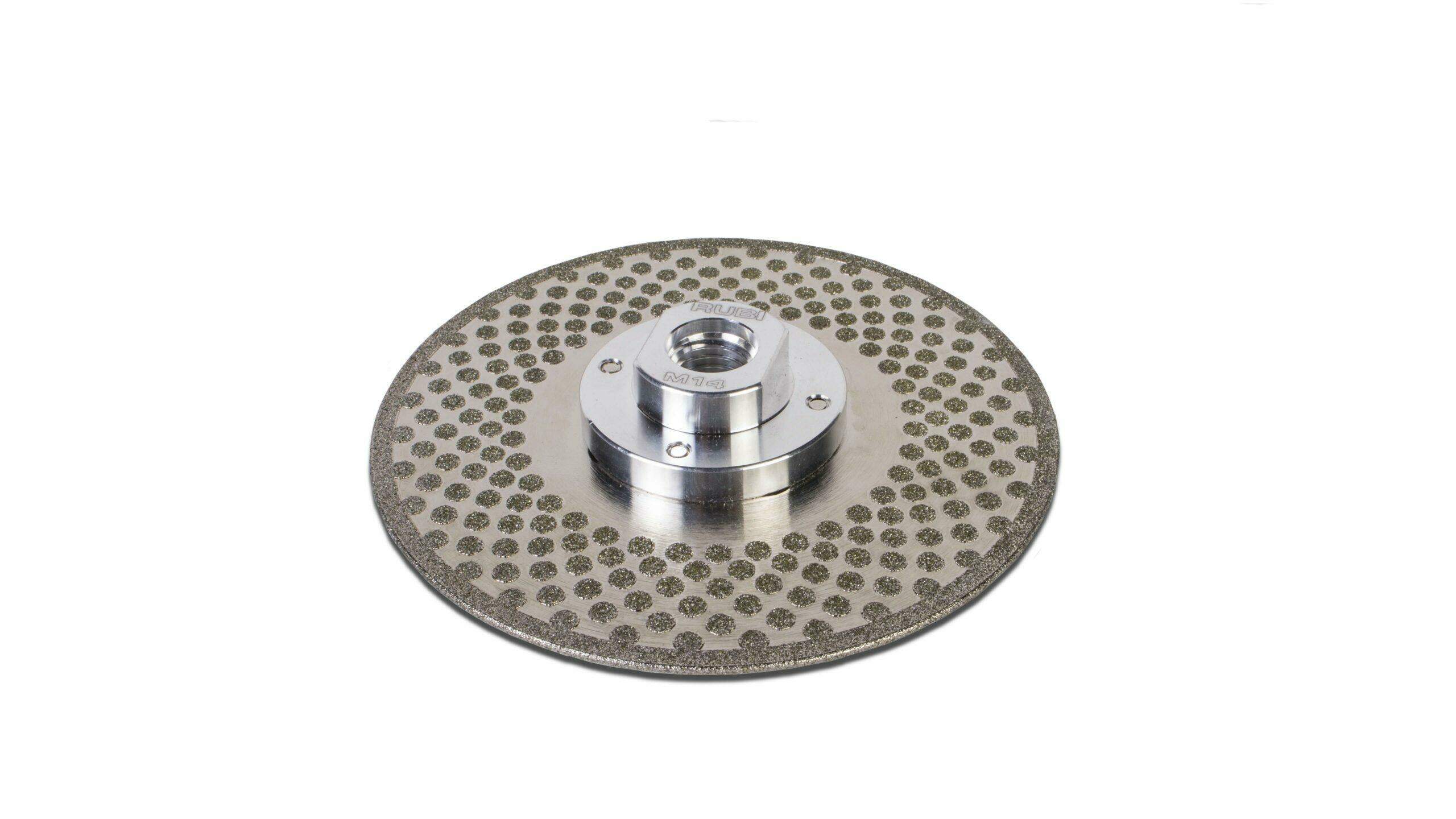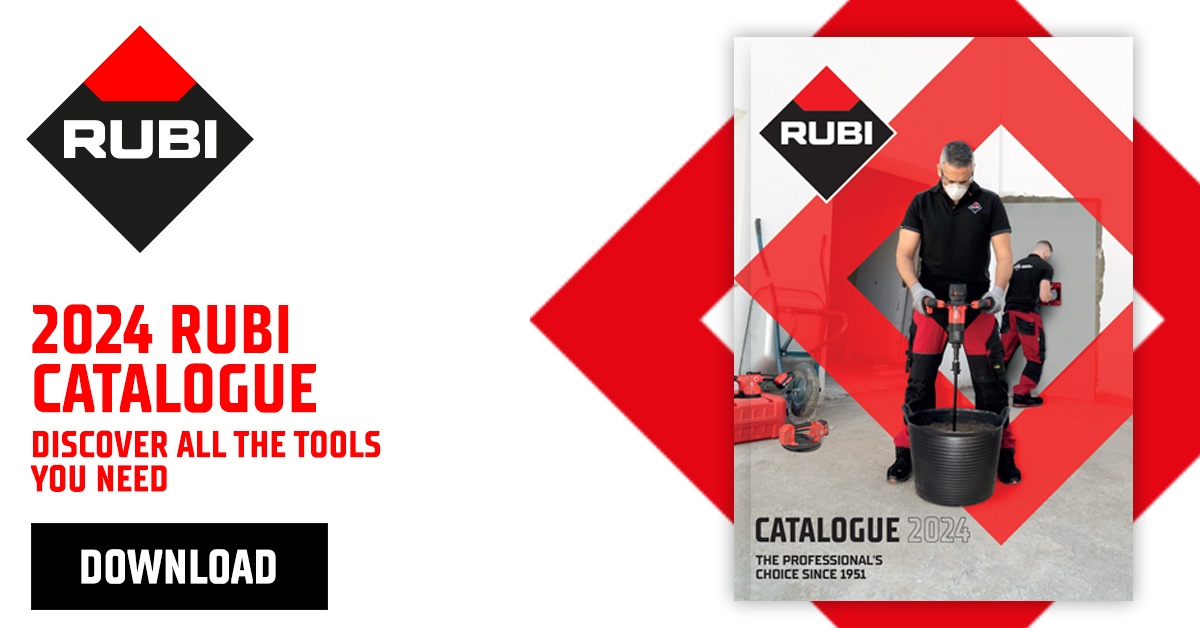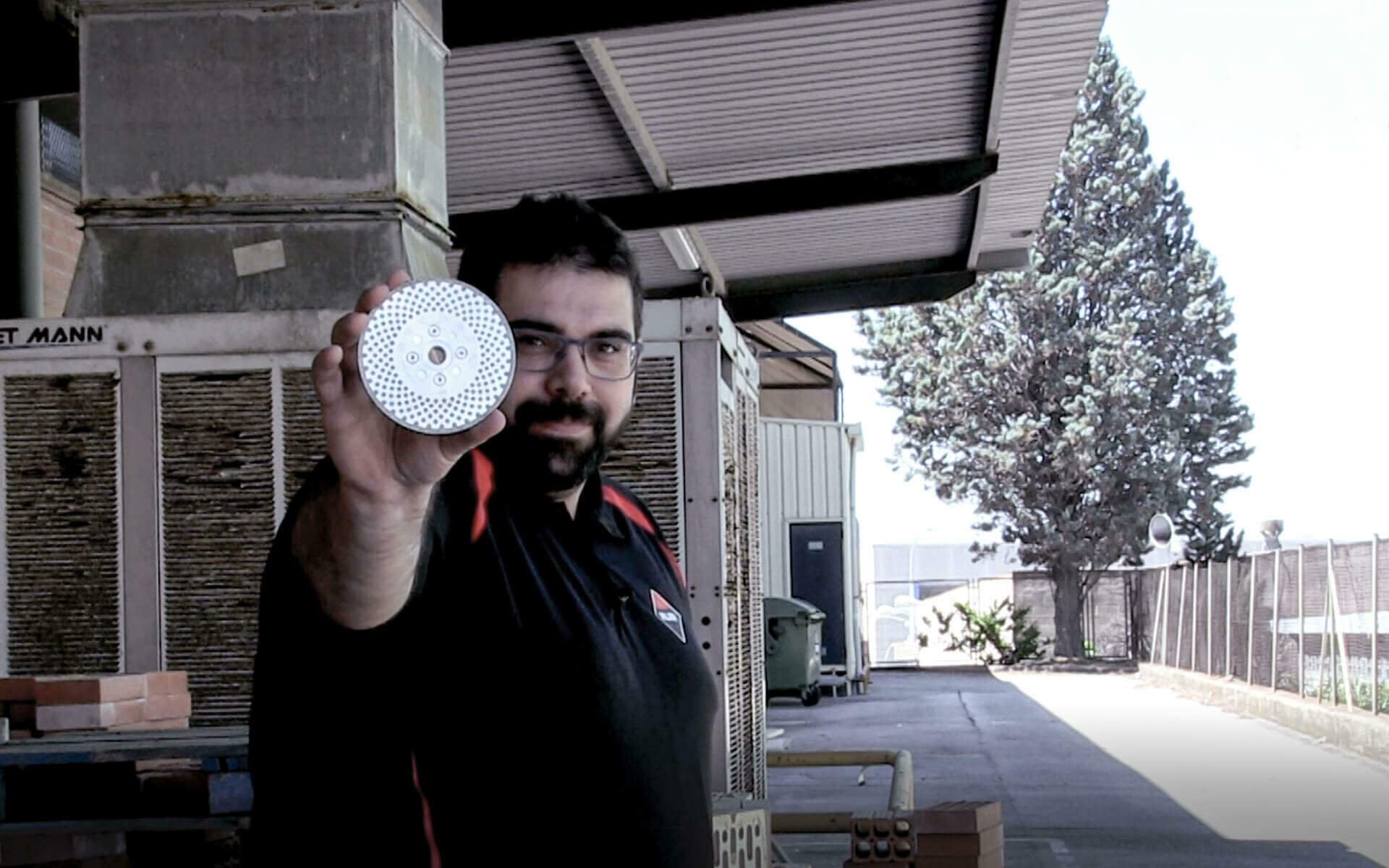ECD Electroplated Diamond blades for cutting and roughing
At the end of 2017, RUBI launched a new diamond disc: the ECD. The ECD diamond blade is designed to be used for dry cutting and roughing of any natural stone or ceramic material, with thicknesses of less than 25 mm. Thanks to its M14 thread connection, the ECD disc is a direct connection to angle grinders and is available in two diameters: Ø115 and Ø125 mm.


This is a double function blade, thanks to its double-sided electrodeposited diamond design, the ECD disc allows us to make dry cuts on a wide variety of materials and, without the need to change discs, we can also grind the edges of the cut to obtain an even better finish. Therefore, the user benefits from reduced downtime, thanks to its 2-in-1 feature.

The list of benefits and advantages of using RUBI ECD blade is very wide.
The ECD diamond blade is an electroplated continuous rim disc, so vibrations during cutting or roughing work are significantly reduced, and a high quality, precise finish is obtained. The versatility of materials (tile, stoneware, porcelain, marble, granite …) and those situations in which it can be used (straight cut, mitre, inserts, finishes …) should not go unnoticed by the professional.
The disc, having diamond on both sides, unlike other products on the market, is reversible and this allows us to get more use out of the product, thus increasing its performance.

Why are not all blades reversible?
In order to use the disc in complete safety, the ECD fixing screws are countersunk, guaranteeing in this way, a perfect planimetry on the external edge of the disc and ensuring that, during roughing work, the screws do not suffer any damage. For the purpose of taking advantage of both sides of the disc, RUBI incorporates two sets of fixing holes and thus, the user can perform this manoeuvre only once.
If the reversible disc is a great advantage, why can we only rotate the disc once and have no replacement?
Basically, it is a safety issue, which at RUBI we take very seriously. To reduce weight and to facilitate the dispersion of heat generated during cutting, RUBI has designed it with a disc holder made of aluminium. If we allowed repeated disassembly and assembly operations of the diamond plate, the screw housings would end up losing torque and we would have a risk of detachment during the use of the disc. For this reason, RUBI does not offer the diamond plate as a replacement.
Safety aspects to take into account
And, since we talk about safety, it is very important that we always take into account all the safety aspects before using any diamond tool, and even more if, as in this case, we are using it with an angle grinder. To start with, the angle grinder must have the proper guard and the handle properly attached. While using the grinder, we will hold it at all times with both hands. On a personal level, we will use gloves, glasses, ear protection, a mask and appropriate clothing and footwear. We will check the direction of rotation of the grinder and make the cut taking into account that the projected particles always come out in the opposite direction to the guard. The orientation of the blade protector must be adjusted to the thickness of the material, but the guard must always be between the operator and the disc. In thicker materials (20 to 25 mm), it is recommended to make the cut in several passes, to facilitate the cooling of the disc, allowing the disc ventilation between passes.
The RUBI ECD disc is, in short, versatility and excellence in a single product.
It is, without a doubt, the perfect complement to our manual cutter, allowing us to execute end cuts and finishes without sacrificing the highest quality. To finish, a note that we think is important for a blade as different as the ECD. The life of the disc can vary significantly, depending on the hardness of the material worked. Consistent use in cuts with high hardness materials such as porcelain can also lead to a reduced disc life.
If you want to know more about this or another RUBI product, share with us your doubts and comments on this blog. We also invite you to read this other post: The Top10 basic tiling tools for professional tilers



Post a comment